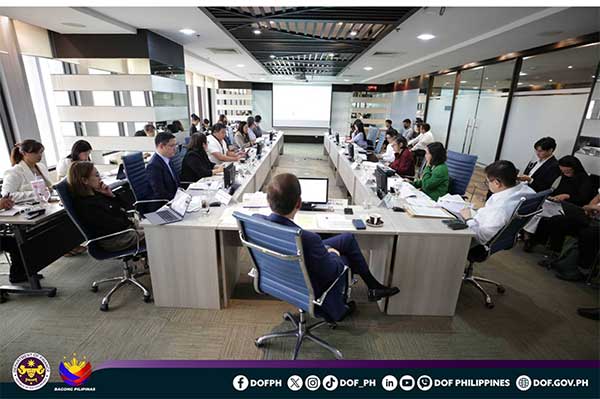
By Francis Allan L. Angelo
Finance Secretary Ralph G. Recto initiated the digital transformation of the Philippines’ border protection system during the inaugural meeting of the Pre-border Technical Verification and Cross-border Electronic Invoicing Systems committee on June 11, 2024, at the Department of Finance (DOF) office in Manila.
“Grounded by AO No. 23, series of 2024, we take the first steps today towards achieving a fully digitalized border protection system in the country where no import goes unnoticed and unaccounted for,” Recto said in a press statement.
Administrative Order (AO) No. 23, signed by President Ferdinand R. Marcos Jr. on May 13, 2024, aims to expedite the inspection of all imported commodities through digital pre-border technical verification and cross-border electronic invoicing.
The initiative is designed to enhance national security, safeguard consumer rights, and protect against substandard and hazardous imports.
The implementation of AO No. 23 will be phased:
- The first phase targets agricultural goods.
- The second phase focuses on non-agricultural goods with health and safety concerns.
- The third phase addresses other goods prone to misdeclaration to avoid duties and taxes.
The Pre-border Technical Verification system involves inspecting and verifying all imported goods before shipment, ensuring accuracy in declared specifications, description, weight, volume, and country of origin. The Cross-border Electronic Invoicing System will create electronic invoices to monitor international trade transactions, shared in real-time across relevant government agencies for transparency.
The committee, chaired by Recto, includes members from the Departments of Agriculture, Trade and Industry, Energy, Health, Environment and Natural Resources, and Information and Communications Technology. Other members include the Bureau of Customs (BOC) Commissioner, the Director General of the Philippine Drug Enforcement Agency (PDEA), and two non-voting representatives from industry associations.
During the meeting, BOC Commissioner Bienvenido Y. Rubio provided an overview of the initiative, and BOC Deputy Commissioner Vener S. Baquiran presented the draft joint administrative order (JAO) outlining the guidelines and implementing rules and regulations (IRR) for the system.
The committee approved the creation of a technical working group (TWG) to review and finalize the draft JAO, which will be presented at the next meeting. The JAO will detail objectives, scope, exemptions, accreditation qualifications for Testing, Inspection, and Certification (TIC) companies, and procedures for reporting and clearance.
The CPTVCEI Secretariat also outlined the process for nominating non-voting representatives from recognized industry associations, with nominations open until June 20, 2024, and appointments to be made by June 28, 2024.
Secretary Recto emphasized the urgency of the project, stating, “Remember, according to AO No. 23, we have two years to complete and fully implement the systems. So, let us all buckle down to work and get this started. Delay is not an option.”
The meeting was attended by high-ranking officials from various government departments, including the Office of the Special Assistant to the President for Investment and Economic Affairs (OSAPIEA), Department of Trade and Industry (DTI), and the Philippine Drug Enforcement Agency, among others.
With the digital border protection systems in place, the Philippines aims to end smuggling, misdeclaration, and undervaluation of imports, ensuring a more secure and transparent trade environment.
















